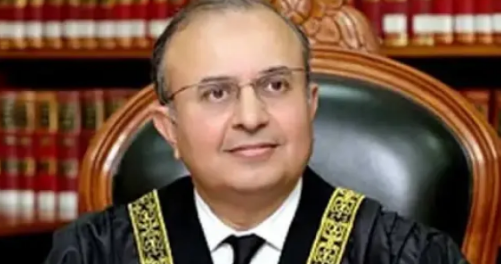Islamabad (Web Desk): Supreme Court’s (SC) senior puisne judge, Justice Mansoor Ali Shah remarked that the 26th Constitutional Amendment had no bearing on the case involving the improper scheduling of certain cases.
The case in question revolved around the actions of Nazar Abbas, the former Additional Registrar (Judicial), who had mistakenly assigned cases, including a challenge to the Customs Act of 1969, to a regular bench instead of a constitutional one. This misstep led to procedural confusion and a review of how cases should be assigned.
The case, initially heard by a three-judge bench on January 13, 2025, raised significant concerns about the jurisdiction of the bench, and the matter was adjourned until January 16.
In light of the error, the Judicial Branch addressed the situation by consulting the regular committee, which ultimately decided to remove the case from the regular bench and refer it to the constitutional bench committee for proper handling.
During the hearing, Attorney General Mansoor Usman Awan emphasized that the court’s jurisdiction in contempt proceedings was restricted, stressing that such matters could not be used to resolve the broader question of bench formation following the 26th Amendment.
He further argued that the court could not examine these questions within the context of the contempt case.
Justice Shah, however, countered by highlighting the specific concern of whether cases could be withdrawn when a bench raised doubts about its own jurisdiction, suggesting that the issue was not tied to the 26th Amendment or the Practice and Procedure Committee’s powers.
Justice Shah also remarked on the dual role of the attorney general, who serves as both the prosecutor and legal advisor in contempt cases.
Despite the ongoing debate, the court appointed Khawaja Haris and Ahsan Bhoon as amicus curiae to assist in resolving the matter, and directed Nazar Abbas to submit a written explanation for his actions.
The hearing was adjourned, with further proceedings scheduled for the next day.


